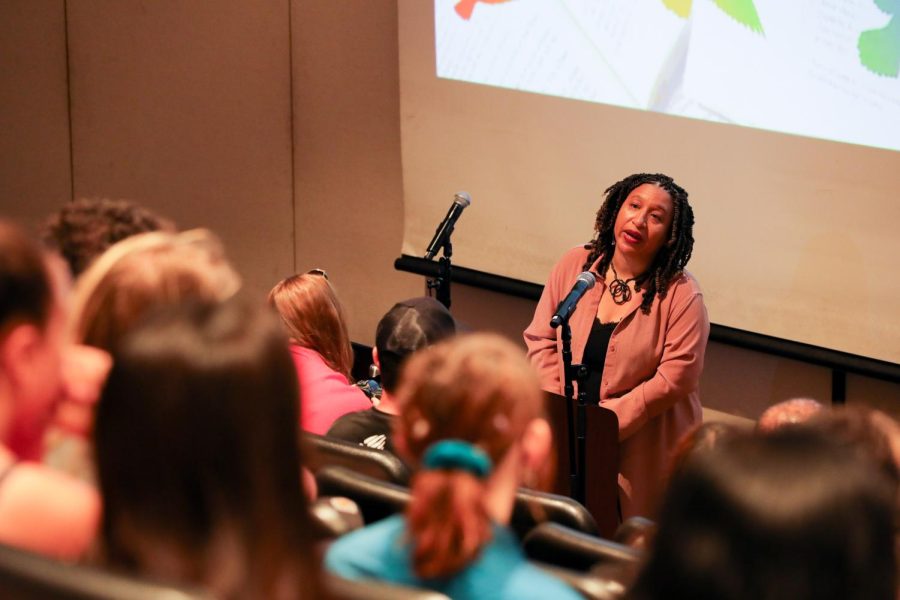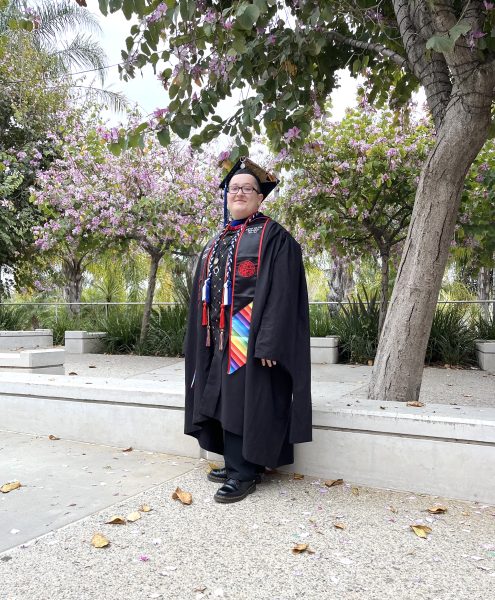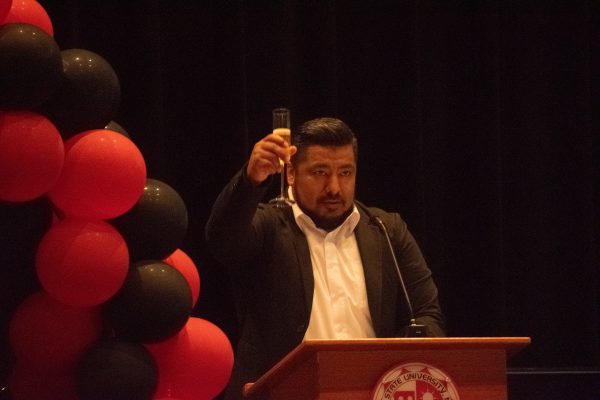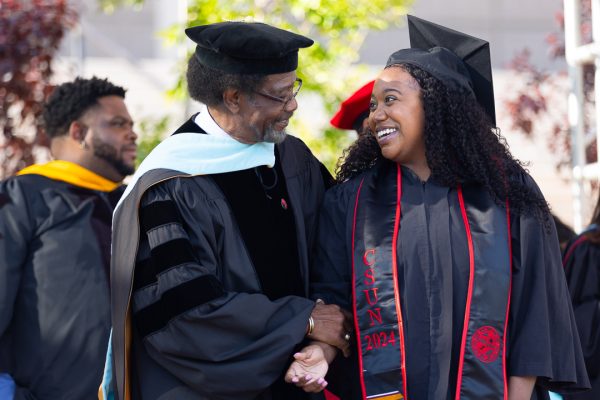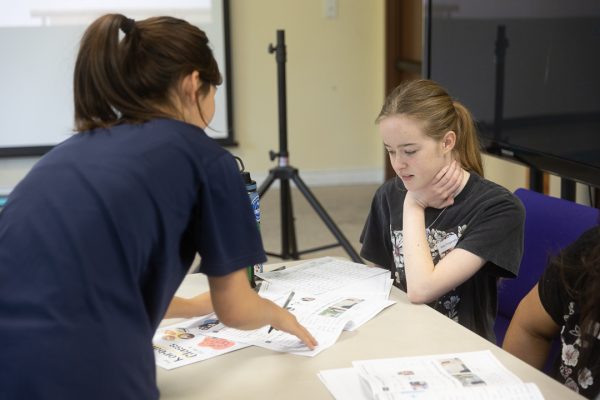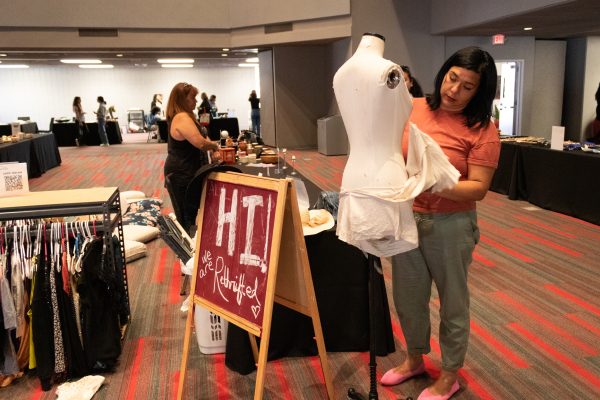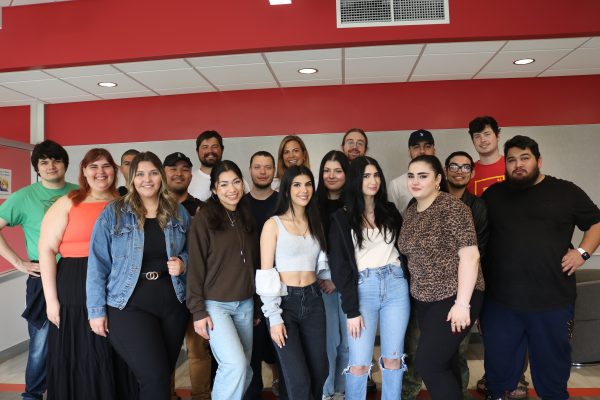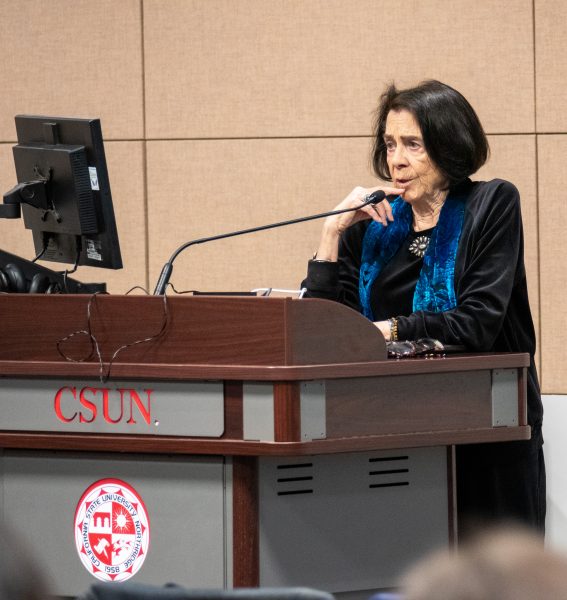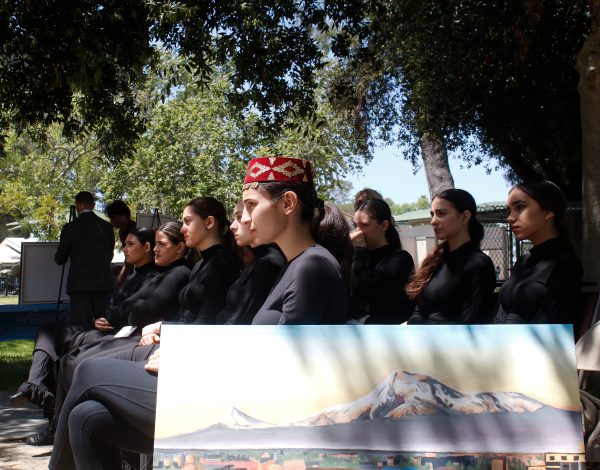10th annual Banned Books Readout promotes expression and community
October 11, 2022
CSUN’s 10th annual Banned Books Readout focused on censorship in the U.S. and its effects against building community.
The CSUN Department of Journalism and the University Library hosted the event, along with the CSUN Queer Studies Program and the Pride Center. This is the first time in the event’s history to involve the latter two programs due to many of the books having LGBTQ themes.
Subtitled “Belonging on the Shelf,” the event emphasized the importance of belonging and inclusion, especially in the wake of Florida’s Parental Rights in Education bill and Stop the Wrongs to Our Kids and Employees Act, also known as the Stop WOKE Act. According to CSUN journalism professor Elizabeth Blakey, the event’s theme was to highlight that “all books belong on the shelf, just like all people belong in our community,” and that “not one group or person can kick anybody out.”
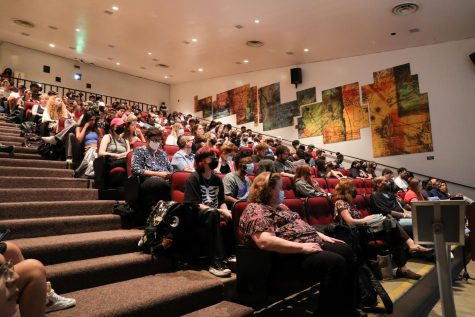
Associate Dean of the University Library Katherine S. Dabbour said it is counterproductive to ban books in a democracy and that it should not be up to other people to decide what people will or will not read.
“If you don’t like a book, just leave it on the shelf,” Dabbour said.
From January through August of this year, the American Library Association recorded 681 attempts to ban or restrict library resources, and 1,651 titles were targeted. Most of the selected titles for the readout were on the ALA’s list of the ten most-challenged books of 2021. Some titles included “The Hate U Give,” “This Book is Gay” and “Gender Queer: A Memoir.”
Students from Blakey’s History of the American News Media class read aloud passages from the selected books to the audience.
Jonathan Evison’s novel “Lawn Boy” was one of the books selected for the readout. The book is the second-most challenged within the last year. Fatimah Jackson, a journalism student, read a passage about community from the coming-of-age novel.
“Whoever you are, whatever your last name is, wherever you came from, whichever way you swing, whatever is standing in your way, just remember: You’re bigger than that,” Jackson read. “Like the man said: You contain multitudes.”
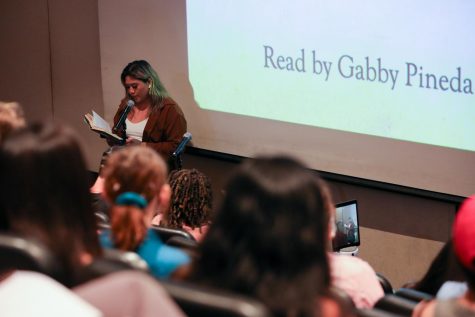
Karimah Tennyson-Marsh, an eighth-grade teacher and author, spoke to the audience prior to the readings. She described how she helped students of different races, genders and sexualities by introducing books that reflect their experiences and identities.
The teacher shared how limiting access to different perspectives restrains young people from feeling included.
“If we only allow certain voices to be read in a classroom, then we are telling 50% of our students that they don’t matter,” Tennyson-Marsh said. “Telling students they don’t matter does not create community, but in fact, does the opposite.”
Blakey gave a comment to The Sundial prior to the event about how some politicians and their push for censorship are “unnecessary” and a tactic of “weak government.”
“There comes a time when the operation of the government in trying to censor human rights and human expression becomes so pernicious that you have to resist,” Blakey said. “You have to speak back and fight back for freedom of expression.”
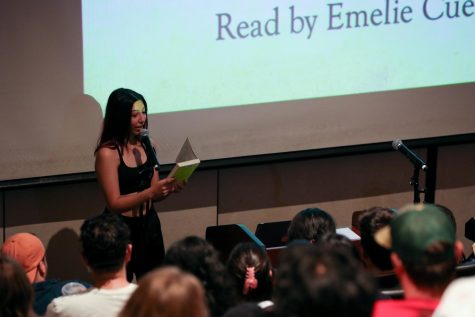
Journalism student Justin Parrott, who was one of the readers at the event, said that holding this event is a way to show acceptance to those who feel “scared of coming out and expressing their feelings.”
“Having these banned books here at Cal State Northridge is good just to get people to know that they feel comfortable and that they feel accepted and that they’re worth something here,” Parrott said.
Blakey gave a speech titled “Belonging on the Shelf — How Do We Respond to Censorship?” The journalism professor said she felt “overwhelmed” with the number of book bans and disagreed with the exclusion of outside voices. She stressed how there is a connection between community building and differences in expression.
“We are a strong community when we’re bound together because of the beauty in our differences and because of our shared humanity,” Blakey said. “We’re all members of a community, and we are more alike than we are different.”
